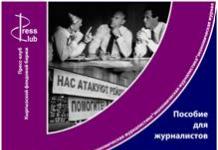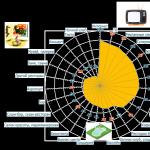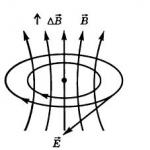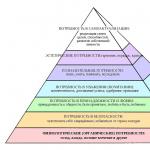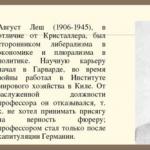Services for conducting seminars provided by an organization that does not have a license to conduct educational activities are subject to VAT. Therefore, having received an invoice from the organizer, after paying the debt, you can deduct the amount of tax from the budget.
Example 5
The organization purchased new equipment worth 120,000 rubles, including VAT - 20,000 rubles. Before putting it into operation, the organization sent an employee to a seminar on the operation of such equipment. The cost of participation in the seminar is 1200 rubles, including VAT – 200 rubles.
D 08 – K 60100,000 rub. the costs of purchasing equipment are reflected;
D 19 – K 6020,000 rub. VAT on purchased assets has been taken into account;
D 08 – K 601000 rub. expenses for employee participation in the seminar are reflected;
D 19 – K 60200 rub. VAT on the seminar is taken into account;
D 01 – K 08101,000 rub. the fixed asset was put into operation;
D 68 – K 19RUB 20,200 accepted for deduction after payment of VAT on purchased equipment.
Example 6
The organization, at the employee’s request, paid for his participation in a seminar on a program not related to production activities.
The following entries will be made in accounting:
D 91 / “Other expenses” – K 76training costs not related to production activities are taken into account as other expenses;
D 76 – K 51tuition fees have been paid;
D 70 – K 68personal income tax is withheld from the cost of non-production training.
As for travel expenses, according to clause 3 of Art. 217 of the Tax Code of the Russian Federation, personal income tax is withheld only from daily allowances issued to an employee in excess of the established norms. Personal income tax is not withheld from payment for accommodation and travel, confirmed by documents, regardless of its amount.
Recently, organizations are often invited to take part in on-site seminars held in other cities of Russia or abroad.
In this case, the cost of additional services of the seminar organizers (food, excursion services, accommodation, transfer, cultural program, etc.) cannot be taken into account for the purposes of taxing the profits of organizations (clauses 21, 25, 29 of Article 270 of the Tax Code of the Russian Federation) as expenses for training.
Payment by the employer for an employee’s participation in a seminar on production topics is not included in the employee’s income, subject to personal income tax and Unified Social Tax (clause 3 of Article 217 and subclause 2 of clause 1 of Article 238 of the Tax Code of the Russian Federation), since it is a reimbursement of expenses to the employee associated with improving his professional level. If the topic of the seminar is not specialized, personal income tax must be collected.
Payment for additional services is income received by the employee in kind, which is taken into account when determining the tax base for personal income tax (clause 1 of article 210 and clause 2 of article 211 of the Tax Code of the Russian Federation). UST will not be charged, since expenses do not reduce the tax base for profits.
Contributions for insurance against industrial accidents and occupational diseases are not accrued on amounts paid to employees to reimburse expenses associated with the performance of their work duties (clause 10 of the List of payments for which insurance contributions to the Social Insurance Fund of the Russian Federation are not accrued, approved. Decree of the Government of the Russian Federation dated 07.07.99 No. 765). This List of payments continues to be valid for the purposes of calculating contributions for accident insurance (clause 4 of the Rules for the calculation, accounting and expenditure of funds for the implementation of compulsory social insurance against accidents at work and occupational diseases, approved by Decree of the Government of the Russian Federation dated March 2, 2000 No. 184 ).
Therefore, formally, paying for additional services for an employee from the enterprise’s profits entails the need to charge contributions for accident insurance.
The amount of VAT paid on additional expenses not related to production activities is not accepted for deduction (Article 171 of the Tax Code of the Russian Federation).
Please note that consulting services, including consulting seminars held abroad, are subject to VAT. This is due to the fact that the place of provision of consulting services is considered to be the territory of our country if the buyer of these services is a resident of Russia. This procedure is established subsection. 4 paragraphs 1 art. 148 Tax Code of the Russian Federation.
Nowadays, many organizations pay great attention to training their employees. In this case, it is necessary to distinguish between receiving vocational education and vocational training. How are these two concepts different?
According to Art. 9 of the Law of the Russian Federation dated June 30, 2007 N 3266-1 “On Education” (hereinafter referred to as Law N 3266-1), the purpose of professional educational programs is to consistently improve professional and general educational levels, and train specialists with appropriate qualifications.
Professional programs include:
- primary vocational education;
- secondary vocational education;
- higher professional education;
- postgraduate professional education.
Professional training in accordance with paragraph 1 of Art. 21 of Law N 3266-1 aims to accelerate the acquisition by students of the skills necessary to perform a certain job or group of jobs. Professional training is not accompanied by an increase in the student’s educational level.
Expenses for vocational education
If the employer, in accordance with the employment contract, has assumed the obligation to pay for higher professional training of the employee, then the accounting and taxation of such expenses will depend on the need for them.
An employment contract with an employee may provide for the employer’s obligation to send the employee to study at a higher educational institution to receive higher (secondary, etc.) vocational education at the expense of the enterprise without leaving work. If such education is obtained by an employee for the first time, then he is entitled to guarantees and compensation. When undergoing training in educational institutions that have state accreditation, the employee in certain cases is granted additional leave, both with and without preservation of average earnings. The duration of leave depends on the reasons for its provision (exams, certification, etc.). Depending on the form of study (full-time, part-time), the employee may be paid for travel to and from the place of study once a year, have a shorter working week before state exams, etc.
If employees combine work and study in educational institutions of higher (secondary, etc.) vocational education that do not have state accreditation, then guarantees and compensation are established by a collective or labor agreement.
The basis for granting study leave is a summons certificate approved by Order of the Ministry of Education of Russia dated May 13, 2003 N 2057.
In accounting, amounts paid for studies, accrued for study leave, as well as the cost of travel to the place of study and back are expenses for ordinary activities (clauses 5, 8 of the Accounting Regulations “Expenses of the Organization” PBU 10/99, approved by Order of the Ministry of Finance of Russia dated May 6, 1999 N 33n) and are debited to account 26 “General business expenses” (44 “Sales expenses”) in correspondence with the credit of account 70 “Settlements with personnel for wages”.
Tuition fees
In accordance with paragraphs. 3 p. 3 art. 264 of the Tax Code of the Russian Federation are not recognized as expenses for training and retraining of personnel, expenses associated with paying for training in higher and secondary specialized educational institutions for employees when they receive higher and secondary specialized education. These expenses are not accepted for tax purposes.
Due to the fact that the cost of training employees in higher (secondary, etc.) vocational educational institutions is not taken into account when calculating income tax, it is, according to clause 3 of Art. 236 of the Tax Code of the Russian Federation is not subject to UST. Consequently, contributions to the Pension Fund of the Russian Federation are not accrued on the indicated amounts (Article 10 of the Federal Law of December 15, 2001 N 167-FZ “On Compulsory Pension Insurance in the Russian Federation”, hereinafter referred to as Law N 167-FZ).
As for personal income tax, according to paragraph 1 of Art. 210 of the Tax Code of the Russian Federation, when determining the tax base, all income of the taxpayer received by him both in cash and in kind is taken into account. Thus, the cost of training is subject to inclusion in the employee’s taxable income and will be taxed at a rate of 13%.
There is a lot of controversy on this issue. They are related to the fact that in paragraphs. 2 p. 2 art. 211 of the Tax Code of the Russian Federation, the taxable income of an employee includes amounts of payment for training conducted in the interests of the employee. In this regard, some enterprises do not include such amounts in the taxable income of employees, guided by the fact that training in higher educational institutions is carried out in the interests of the enterprise (i.e. due to production needs). It should be noted that some courts side with the taxpayer (Resolutions of the Presidium of the Supreme Arbitration Court of the Russian Federation dated July 18, 2000 N 355/00, FAS PO dated September 6, 2004 N A65-5492/2004-SA2-34, FAS MO dated July 14, 2005 N KA- A40/6346-05, FAS UO dated November 29, 2005 N F09-5353/05-S2, FAS SZO dated December 29, 2005 N A05-6119/2005-12, etc.).
The basis for not including such amounts in taxable income is the order of the manager to send the employee for training due to production needs.
In addition, insurance contributions for compulsory social insurance against industrial accidents and occupational diseases in the Federal Social Insurance Fund of the Russian Federation must be added to the cost of training. In the List of payments for which these contributions are not accrued, approved by Decree of the Government of the Russian Federation of July 7, 1999 N 765 (hereinafter referred to as Resolution N 765), payment for employee training is not mentioned.
Payment for study leave
Expenses for wages maintained in accordance with the law during study leaves provided to employees, in accordance with clause 13 of Art. 255 of the Tax Code of the Russian Federation relate to labor costs and are taken into account when calculating the tax base for income tax.
In accordance with Art. 236 and art. 237 of the Tax Code of the Russian Federation, the cost of payment for educational leave is subject to inclusion in the tax base under the Unified Social Tax and, accordingly, compulsory pension insurance (Article 10 of Law No. 167-FZ).
Payment for travel to the place of study.
Costs for travel to and from the place of study, including when annual leave is added to study leave in agreement with the employer, are taken into account as part of labor costs (clause 13 of Article 255 of the Tax Code of the Russian Federation, Letter of the Ministry of Finance of Russia dated 02/06/2006 N 03-03-04/4/24).
Due to the fact that payment of the cost of travel to the place of study and back is a compensation payment made in accordance with the Labor Code of the Russian Federation, it is not subject to the Unified Social Tax (clause 2, paragraph 1, Article 238 of the Tax Code of the Russian Federation), insurance contributions for compulsory pension insurance ( clause 2 of article 10 of Law N 167-FZ), personal income tax (clause 3 of article 217 of the Tax Code of the Russian Federation) and insurance contributions for compulsory social insurance against industrial accidents and occupational diseases (clause 10 of Resolution No. 765).
Let us remind you that guarantees and compensations for employees combining work with training are provided only when receiving education at the appropriate level for the first time (Article 177 of the Labor Code of the Russian Federation). However, this does not affect the tax consequences in terms of the unified social tax and the Pension Fund of the Russian Federation, since payment for study leave and travel to the place of study will not be subject to the unified social tax and contributions to the Pension Fund of the Russian Federation on other grounds, namely as expenses that do not reduce the taxable base for income tax (p 3 Article 236 of the Tax Code of the Russian Federation).
Expenses for professional training and retraining of personnel
The rights and obligations of workers and employers regarding professional training are reflected in Art. Art. 196, 197 of the Labor Code of the Russian Federation, according to which the employee has the right to professional training, retraining and advanced training, the need for which is determined by the employer. According to paragraph 1 of Art. 21 of Law N 3266-1, vocational training is aimed at accelerating the student’s acquisition of the skills necessary to perform a specific job or group of jobs. It is not accompanied by an increase in the student’s educational level.
Based on clause 1 of the Regulations on the procedure and conditions for professional retraining of specialists, approved by Order of the Ministry of Education of Russia dated 09/06/2000 N 2571, professional retraining of specialists is an independent type of additional professional education, is carried out taking into account the profile of the specialists’ education and is carried out by educational institutions of advanced training and departments educational institutions of higher and secondary vocational education in additional professional educational programs of two types, one of which ensures the improvement of the knowledge of specialists to perform a new type of professional activity, the other - obtaining additional qualifications.
In accordance with paragraphs. 23 clause 1 art. 264 of the Tax Code of the Russian Federation, other expenses for the purpose of calculating income tax include expenses for training and retraining of personnel on the taxpayer’s staff on a contractual basis. Costs for advanced training are also considered such expenses.
Clause 3 of Art. 264 of the Tax Code of the Russian Federation contains the basic conditions, subject to which an organization can include the costs of training and retraining of personnel in the calculation of the taxable base:
- relevant services are provided by Russian educational institutions that have received state accreditation (having the appropriate license), or by foreign educational institutions that have the appropriate status;
- training (retraining) is carried out by the taxpayer's employees on staff, and for operating organizations, in accordance with the legislation of the Russian Federation, responsible for maintaining the qualifications of workers at nuclear installations, employees of these installations;
- the training (retraining) program promotes advanced training and more efficient use of the specialist being trained or retrained in this organization within the framework of the taxpayer’s activities.
When sending an employee to improve his qualifications, the employer is obliged in accordance with Art. 187 of the Labor Code of the Russian Federation to maintain his average salary. If employees are sent to improve their qualifications outside of work in another area, then they are paid for travel expenses in the manner and amount provided for persons sent on business trips.
When concluding an agreement for advanced training, an organization must remember that, in accordance with clause 3 of Art. 264 of the Tax Code of the Russian Federation are not recognized as expenses for training and retraining of personnel and for tax purposes expenses related to the organization of entertainment, recreation or treatment are not accepted; for the maintenance of educational institutions or the provision of free services to them.
When paying bills for services related to advanced training, you should pay attention to the list of services provided. So, for example, if the cost of food is highlighted in the documents as a separate line, then the costs for it cannot be taken into account when calculating income tax, since they are unreasonable and not related to production activities. In addition, these amounts are included in the employee’s taxable income for calculating personal income tax.
As for the cost of the advanced training or retraining course itself, according to clause 3 of Art. 217 and paragraphs. 2 p. 1 art. 238 of the Tax Code of the Russian Federation, compensation payments related to reimbursement of other expenses for improving the professional level of employees are not subject to personal income tax and unified social tax and, as a result, insurance contributions to the Pension Fund.
If an employee’s training is carried out by order of the manager and is related to the employee’s performance of his job duties, insurance premiums for industrial accidents and occupational diseases are not charged.
In practice, many questions arise regarding the taxation of expenses for advanced training of employees. For example, is it necessary to include in taxable income for personal income tax:
- the cost of the exam to obtain a professional accountant certificate;
- cost of teaching foreign languages.
As for the first question, yes, it is necessary, since the employee himself, and not the enterprise, is primarily interested in obtaining a certificate.
The procedure for taxation of expenses for teaching foreign languages depends on whose initiative it is carried out. If the training is carried out on the basis of an order from the manager, corresponds to the employee training program at the enterprise and is directly related to the performance of his job duties, then these amounts should not be included in the employee’s taxable income.
It should be noted that the tax authorities in some of their letters take a different point of view (Letter of the Federal Tax Service of Russia dated November 16, 2005 N 04-1-03/792).
A.Vagapova
CJSC "Gorislavtsev and K."
This is exactly the question that Mikhail Popov, an accountant at one of the Moscow region enterprises, faced.
Today, almost every organization sends its employees for additional training. And the point here is not so much the prestige of the company, but the need for qualified specialists. But how can we take into account the costs of employee education in this case?“I work as an accountant at a company that produces household chemicals. Our management decided to send some employees to study. I was entrusted with determining the forms of training. You ask why? Everything ingenious is simple! There is only one criterion - to choose the best training option from a tax point of view.
As a result of studying the regulatory framework, I settled on the following options.
- An employee can receive a higher (specialized secondary) education at the expense of the company. This option is suitable for our lawyer: he is a young guy, just out of college.
- In order not to miss important tax changes, my colleague from the tax group needs to be sent to a seminar with the participation of representatives of the Federal Tax Service of Russia.
- It is possible to improve an employee's qualifications through short-term courses - this is for our marketer.
In our country you have to pay for a second higher education. Therefore, it may backfire on our company. There is not a single “expenses” item in the Tax Code under which the costs of such training could be written off. Moreover, paragraph 3 of Article 264 of the code says in black and white that they will not reduce income tax. It turns out that we will have to pay from the free funds of the enterprise remaining after paying income taxes.”
From the editor:“Now about the seminars. As a rule, they take place in the form of lectures and consultations on specific issues and problems. They can be carried out by anyone and everyone. After all, this does not require a license to conduct educational activities.Please note that personal income tax must be withheld from the cost of university education that the organization paid for the employee. After all, these amounts will be considered the employee’s income received in kind (subclause 1, clause 2, article 211 of the Tax Code of the Russian Federation).
Officials share the same opinion. They believe that such training is associated with an increase in a person’s educational level. This means that the costs do not relate to compensation payments, in accordance with paragraph 3 of Article 217 of the Tax Code of the Russian Federation (clause 2 of the letter of the Federal Tax Service of the Russian Federation dated May 28, 2002 No. 04-1-06/561-U452).
In addition, amounts paid for employee training are not subject to UST. For the reason that they do not reduce the tax base for income tax (clause 3 of Article 236 of the Tax Code of the Russian Federation).
For our employees, I chose a seminar on one of the accounting sites. I learned that in order to participate in it, you need to conclude an agreement with the organizer of the event. As for the costs of paying for it, I would classify them as “other” – as consulting services.”
From the editor:“As for advanced training for a marketer, I found out that it can be carried out on the basis of a specialized training center. Retraining will not pass without a trace for the employee: based on its results, they carry out state certification and issue a diploma. Which is good for the company too - after all, an extra diploma “on staff” never hurts.An employee of the company is sent to participate in seminars in order to obtain new knowledge and skills that may be useful to him in the course of his activities at this enterprise.
An agreement for the provision of services (consulting) with the organizer of the seminar must be concluded on behalf of the company. In this case, the costs of paying for it can be classified as other expenses (subclause 15, clause 1, article 264 of the Tax Code of the Russian Federation), thereby reducing taxable profit.
Unified social tax and personal income tax do not need to be charged on this amount (subclause 2, clause 1, article 238, clause 3, article 217 of the Tax Code of the Russian Federation). After all, the employee will attend the seminar at the decision of the company; the recipient of the services is the company itself, and not its employee.
Please note that seminars can be not only consulting, but also educational. The difference between them is that training seminars are conducted by organizations licensed to conduct educational activities. This means, in accordance with Article 27 of the Law of the Russian Federation of July 10, 1992 No. 3266-1 “On Education”, upon completion of training the employee will receive a document on education (Letter of the State Tax Inspectorate for Moscow dated August 29, 1994 No. 11-13/ 11112).
Costs for training workshops will be accounted for differently than for consultations. The amount that will be used to pay for the employee’s participation in the seminar is included in the costs of training and retraining of personnel (subclause 23, clause 1, article 264 of the Tax Code of the Russian Federation). Unified social tax and personal income tax are not charged, as is the case with consulting seminars.
I contacted a specialized university and found out that they offer short-term advanced training courses. It will be necessary to conclude an agreement with the institute. We will also be able to write off costs associated with training as other expenses - this is clearly stated in the Tax Code (subclause 23, clause 1, article 264 of the Tax Code of the Russian Federation). I think that our marketer was frankly lucky.”
From the editor:“After conducting the review, I was able to formulate the following conclusions for management. The option of an employee receiving a second higher education is not very suitable for our company: firstly, it is quite expensive, and secondly, the cost of training cannot be included in expenses.In order to take into account the amounts that went towards paying for training, when calculating income tax, the agreement with the educational institution must be concluded on behalf of the company.
Keep in mind that costs for retraining personnel (upgrading qualifications) are considered other expenses and, as a result, reduce taxable profit only if a number of conditions are met (clause 3 of Article 264 of the Tax Code of the Russian Federation). First, the educational institution must have state accreditation (or license). Secondly, only employees who are on the organization’s staff should undergo retraining. And thirdly, the training program should help improve the skills and more efficient work of employees.
The training in the form of a seminar aroused genuine interest in our general. After all, this is the most convenient form of training: inexpensive, does not take up much of the employee’s time, and the costs of seminars reduce the taxable base for income tax.
Professional retraining and advanced training of workers takes longer. In addition, during the period of off-the-job training, the employee will have to pay the average salary (Article 187 of the Labor Code of the Russian Federation). But there are also advantages. First, a diploma is issued. Secondly, it is possible to reduce income tax due to the amounts that will be used to pay for training.”
From the editor:There are situations when an employee undergoes training at the expense of his “home office” and after that decides to quit. To protect itself from such actions, an organization can take preventive measures. For example, add additional conditions to the employment contract.
Thus, the agreement between the employee and the employer may provide for the obligation of the former to work after training for no less than the period established by the contract, if the training was carried out at the expense of the organization (Article 57 of the Labor Code of the Russian Federation). Moreover, in the event of dismissal without good reason before the expiration of the period established by the employment contract, the employee will have to reimburse the company’s expenses associated with his training (Article 249 of the Labor Code of the Russian Federation).
The employee must submit his request for payment for studies in a free form.
An agreement with an educational institution (organization carrying out educational activities) may be concluded by:
- the employee himself;
- the organization in which the student works.
In the first case, the organization compensates the employee for the cost of training. In the second case, the organization itself will conclude an agreement for the provision of educational services to the employee and pay their cost. In such a situation, the manager issues an order to pay for the employee’s education at the expense of the organization’s own funds.
All facts of the economic life of the organization must be confirmed by primary documents that contain the details listed in Part 2 of Article 9 of the Law of December 6, 2011 No. 402-FZ. Such documents, for example, could be:
- agreement with an educational institution;
- act on the provision of educational services.
Accounting
In accounting, training costs that are not related to the production activities of the organization (in the interests of the employee) should be reflected as part of other expenses (clause 11 of PBU 10/99).
If the organization pays for the employee’s studies directly to the educational institution, reflect this with the following entries:
Debit 91-2 Credit 76
Debit 76 Credit 51
- payment for employee training is transferred.
Educational services of educational organizations are not subject to VAT (subclause 14, clause 2, article 149 of the Tax Code of the Russian Federation). Therefore, there is no input tax in the payment documents presented by such organizations.
Educational services of commercial organizations providing training are subject to VAT at a rate of 18 percent (clause 3 of Article 164 of the Tax Code of the Russian Federation). Reflect the tax amount allocated in the settlement documents by posting:
Debit 19 Credit 76
- VAT is taken into account on the cost of services of a commercial organization providing training.
If the organization deducts training costs (or part of them) from an employee’s salary, make the following entries in your accounting:
Debit 73 Credit 76
- expenses (part of expenses) for training are attributed to the employee;
Debit 70 Credit 73
- part of the training costs is deducted from the employee’s salary.
The cost of training can be deducted from an employee's salary only upon his written request. The list of cases when the administration of an organization, on its own initiative, can withhold amounts from an employee’s salary is given in Articles 137 and 238 of the Labor Code of the Russian Federation. There are no deductions for tuition fees.
An example of how employee training costs are reflected in accounting. The training is carried out in the interests of the employee under an agreement between the employer and the educational institution. The organization deducts part of the educational expenses from the employee’s salary.
Cashier of Alfa LLC A.V. Dezhneva is studying at the law faculty of the university. The agreement with the educational institution was concluded on behalf of Alpha. In August, the organization paid for Dezhneva’s tuition for the first semester. The cost of educational services is 6000 rubles. The university is an educational organization, therefore its services are not subject to VAT.
According to the employee, 20 percent of the cost of study is withheld from her salary.
In August:
Debit 76 Credit 51
Debit 73 Credit 76
- 1200 rub. (6,000 rubles × 20%) - attributed to settlements with the monetary part of training costs;
Debit 70 Credit 73
- 1200 rub. - deducted from the salary The monetary portion of training expenses.
At the end of the first semester:
Debit 91-2 Credit 76
If the employee first paid for his studies himself, and the organization compensates him for the expenses, then reflect this operation with the following entries:
Debit 91-2 Credit 73
- employee training costs are reflected;
Debit 73 Credit 50
- the employee is compensated for training expenses.
Personal income tax and insurance premiums
Situation: is it necessary to withhold personal income tax from the cost of training for an employee (employee’s children)? The training is carried out in the interests of the employee (his children), but at the expense of the organization.
The answer to this question depends on whether the conditions listed in paragraph 21 of Article 217 of the Tax Code of the Russian Federation are met.
Namely, the educational institution (organization carrying out educational activities) in which the employee (his children) studied has a license for educational activities or the corresponding status for a foreign educational institution. If these conditions are met, do not withhold personal income tax (clause 21, article 217 of the Tax Code of the Russian Federation). Moreover, the fact that the training was in the interests of the employee (his children) does not matter. It also does not matter who pays for the studies (the organization itself or the employee, and the organization reimburses him for the costs). Please note that the organization must have documents confirming the expenses incurred (training agreement, which indicates the license number or status of the educational institution, type of study and payment procedure, payment documents).
If the conditions established in paragraph 21 of Article 217 of the Tax Code of the Russian Federation are not met, study in the interests of the employee (his children) refers to income in kind, which is subject to personal income tax (subclause 1, paragraph 2, Article 211 of the Tax Code of the Russian Federation).
Similar conclusions follow from letters of the Ministry of Finance of Russia dated October 4, 2012 No. 03-04-06/6-295, dated April 2, 2012 No. 03-04-06/6-88.
Regardless of the taxation system applied, contributions to compulsory pension (social, medical) insurance, as well as contributions to insurance against accidents and occupational diseases, must be assessed on the cost of training in the interests of the employee.
This is explained by the fact that this payment is considered as payment for employee services. The employer makes such payments within the framework of the employment contract; in addition, they are not included in the closed list of amounts not subject to insurance premiums (including for accidents and occupational diseases). This conclusion can be drawn from Part 1 of Article 7 and Article 9 of the Law of July 24, 2009 No. 212-FZ, as well as Part 1 of Article 20.1 and Part 1 of Article 20.2 of the Law of July 24, 1998 No. 125-FZ.
The procedure for calculating other taxes depends on what taxation system the organization uses.
BASIC
Costs of study that are not related to basic or additional professional education or professional training of an employee and are not carried out in interests of the organization , but in the interests of the employee, cannot be taken into account when calculating income tax (subclause 23, clause 1, article 264 and clause 1, article 252 of the Tax Code of the Russian Federation).
Since employee training costs do not reduce taxable profit, accrue a permanent tax liability in accounting (clauses 4 and 7 of PBU 18/02).
An example of how employee training expenses are reflected in accounting and tax purposes. The organization applies a general taxation system. The training is carried out in the interests of the employee under an agreement between the employer and the educational institution
Cashier of Alfa LLC A.V. Dezhneva is studying at the Faculty of Law of a university that has a license for educational activities. The agreement with the educational institution was concluded on behalf of Alpha. The organization calculates income tax monthly using the accrual method. The tariff for calculating insurance premiums for accidents and occupational diseases is 0.2 percent. The organization charges insurance premiums for compulsory pension (social, medical) insurance at general rates.
In August, the organization paid for Dezhneva’s studies in the first semester. The cost of educational services is 6000 rubles. The university is an educational organization, therefore its services are not subject to VAT. Dezhneva's salary is 12,000 rubles. The employee does not have rights to deductions for personal income tax.
According to the employee, 20 percent of the cost of training is withheld from her salary.
The act on the provision of educational services for the first semester was signed in January of the following year.
The following entries were made in the organization's records.
In August:
Debit 76 Credit 51
- 6000 rub. - Dezhneva’s tuition was paid for in the first semester;
Debit 26 Credit 70
- 12,000 rub. - Dezhneva’s salary for August was accrued;
Debit 73 Credit 76
- 1200 rub. (6,000 rubles × 20%) - attributed to settlements with the monetary part of training costs;
Debit 70 Credit 73
- 1200 rub. - the monetary portion of training costs is withheld from the salary;
Debit 70 Credit 68 subaccount “Personal Income Tax Payments”
- 1560 rub. (RUB 12,000 × 13%) - personal income tax is withheld from Dezhneva’s income;
Debit 26 Credit 69 subaccount “Settlements with Pension Fund”
- 3696 rub. ((12,000 rub. + 4,800 rub.) × 22%) - pension contributions are accrued (for the amount of the salary and the cost of training of the employee, paid at the expense of the organization);
Debit 26 Credit 69 subaccount “Settlements with the Social Insurance Fund for social insurance contributions”
- 487.20 rub. ((12,000 rubles + 4,800 rubles) × 2.9%) - social insurance contributions in case of temporary disability and in connection with maternity in the Federal Social Insurance Fund of Russia (for the amount of the salary and the cost of training of the employee, paid at the expense of the organization);
Debit 26 Credit 69 subaccount “Settlements with FFOMS”
- 856.80 rub. ((12,000 rub. + 4,800 rub.) × 5.1%) - contributions for health insurance to the Federal Compulsory Medical Insurance Fund (for the amount of the salary and the cost of training for the employee, paid at the expense of the organization);
Debit 26 Credit 69 subaccount “Settlements with the Social Insurance Fund for contributions to insurance against accidents and occupational diseases”
- 33.60 rub. ((12,000 rub. + 4,800 rub.) × 0.2%) - contributions for insurance against accidents and occupational diseases (for the amount of the salary and the cost of training for the employee, paid at the expense of the organization).
In January:
Debit 91-2 Credit 76
- 4800 rub. (6000 rubles - 1200 rubles) - Dezhneva’s training expenses are written off.
The organization's expenses for Dezhneva's training do not affect the calculation of income tax. Therefore, accounting reflects a permanent tax liability:
Debit 99 subaccount “Fixed tax liabilities” Credit 68 subaccount “Calculations for income tax”
- 960 rub. (RUB 4,800 × 20%) - a permanent tax liability has been accrued on training expenses that do not reduce taxable profit.
Advice: it is possible to take into account the costs of training in the interests of the employee as expenses when calculating income tax, if they are classified as remuneration in kind.
Labor costs include any accruals to employees in cash and (or) in kind, provided for by Russian legislation, labor agreements (contracts) and (or) collective agreements. This is stated in Article 255 of the Tax Code of the Russian Federation.
In order to be able to attribute the cost of study in the interests of an employee to expenses under Article 255 of the Tax Code of the Russian Federation, it is clearly stated in the employment (collective) agreement that these payments are
Similar conclusions follow from paragraph 2 of the letter of the Ministry of Finance of Russia dated December 21, 2011 No. 03-03-06/1/835. Although this letter focuses on paying for the education of employees' children, the explanations provided in it can be applied to this situation.
It should be noted that if an organization qualifies study expenses in the interests of an employee as remuneration in kind, then personal income tax will have to be withheld from the specified amount (subclause 1, clause 2, article 211 of the Tax Code of the Russian Federation).
An employee’s studies in his interests are not related to the activities of the organization. Therefore, write off the VAT charged by commercial organizations providing training as expenses without reducing taxable profit (Clause 1, Article 170 of the Tax Code of the Russian Federation).
In accounting, make the following entry:
Debit 91-2 Credit 19
- VAT is written off at the expense of the organization’s own funds.
simplified tax system
The tax base of simplified organizations does not reduce the cost of training an employee in his interests.
For organizations that pay a single tax on income - because when calculating the tax, they do not take into account any expenses at all (clause 1 of Article 346.18 of the Tax Code of the Russian Federation).
Organizations that pay a single tax on the difference between income and expenses - because when calculating the single tax, they can only take into account the costs of professional training and retraining of employees in the interests of the organization. Such organizations cannot take into account the cost of training an employee in his own interests. This follows from subparagraph 33 of paragraph 1 of Article 346.16, paragraph 3 of Article 264, paragraph 1 of Article 252 and paragraph 2 of Article 346.16 of the Tax Code of the Russian Federation.
Advice: organizations that pay a single tax on the difference between income and expenses have the opportunity to take into account the costs of training an employee (in his interests) in expenses if they qualify them as remuneration in kind.
Simplified organizations that pay a single tax on the difference between income and expenses can include labor costs as part of their costs (subclause 6, clause 1, article 346.16 of the Tax Code of the Russian Federation). At the same time, they take into account these expenses in the same manner as organizations on the general taxation system, that is, according to the rules of Article 255 of the Tax Code of the Russian Federation (clause 2 of Article 346.16 of the Tax Code of the Russian Federation). According to this article, labor costs include any accruals to employees in cash and (or) in kind, provided for by the norms of Russian legislation, labor agreements (contracts) and (or) collective agreements.
In order to be able to include the cost of training in the interests of an employee as an expense when calculating the single tax, it is clearly stated in the employment (collective) agreement that these payments arepayment in kind . In addition, it is necessary to take into account that the amount of payments in kind should not exceed 20 percent of the employee’s accrued monthly salary (Article 131 of the Labor Code of the Russian Federation).
Similar conclusions follow from paragraph 2 of the letter of the Ministry of Finance of Russia dated December 21, 2011 No. 03-03-06/1/835. Despite the fact that this letter is dedicated to paying for the education of employees’ children and is addressed to income tax payers, the explanations given in it can also be applied to the situation under consideration.
It should be noted that if an organization qualifies the costs of training an employee in his interests as remuneration in kind, personal income tax will have to be withheld from the specified amount (subclause 1, clause 2, article 211 of the Tax Code of the Russian Federation).
UTII
The object of UTII taxation is imputed income (clause 1 of Article 346.29 of the Tax Code of the Russian Federation). Therefore, the cost of training an employee in his interests does not affect the calculation of the tax base.
OSNO and UTII
Organizations that combine the general taxation system and UTII must keep separate records of income and expenses received from various types of activities (clause 9 of Article 274 of the Tax Code of the Russian Federation).
However, the costs of training an employee in his interests cannot be taken into account when calculating income tax (subclause 23, clause 1, clause 3, article 264, clause 1, article 252 of the Tax Code of the Russian Federation). The object of UTII taxation is imputed income (clause 1 of Article 346.29 of the Tax Code of the Russian Federation). The organization's expenses do not affect the calculation of the tax base.
Thus, for the purposes of calculating income tax and UTII, there is no need to distribute expenses associated with an employee’s studies in his interests between different types of activities.
Despite the difficult economic situation, most managers do not forget to work for the future. What could be more promising than qualified and knowledgeable employees? Therefore, the issue of training, retraining and advanced training of personnel always remains open. At the same time, it is important to correctly prepare accounting documents so that employee training becomes a promising profit and not a waste.
Employee training at the expense of the organization
The decision on the appropriateness of employee training belongs to the employer (Article 196 of the Labor Code of the Russian Federation). The exceptions are items that are regulated by Federal Law. For example, those working in the field of passenger cars and freight road transport certainly need advanced training to ensure the safety of passengers and cargo (Article 20 of the Federal Law, paragraph 1). And in paragraph 2 of Art. 72 of the Federal Law states that heads of medical institutions must create the necessary conditions for combining education and work for employees who want to undergo professional retraining and advanced training at the expense of the organization.
This may include expenses for advanced training or training of employees with whom an employment contract was concluded.
To obtain additional education for those who are not currently employees of the enterprise, an agreement is concluded between the student and the employer, according to which the former undertakes to work at this enterprise for at least a year from the date of completion of the training course.
Clause 3 of Rules No. 580n lists expenses that can be included through insurance premiums. The list was last expanded in 2016. One of its points is the cost of training in labor protection for certain categories of workers (working at hazardous production facilities, managers, members of commissions and specialists in labor protection services).
Expenses for training employees at the expense of the organization: taxation
In paragraph 21 of Art. 217 of the Tax Code states that training costs for taxpayers in basic and additional educational programs are exempt from personal income tax.

Expenses for personnel training are included in income tax and are included in paragraph 23, paragraph 264 of Art. Tax Code of the Russian Federation as “other expenses associated with production and/or sales”. According to this article, it is allowed:
- training in basic and additional educational programs;
- vocational training and retraining;
- advanced training to pass an independent conformity assessment.
To include employee education expenses in income tax, there are some conditions:
- Potential profit from the employee gaining additional knowledge. That is, a company working exclusively on the domestic market and not planning to enter the foreign market will find it difficult to explain to tax authorities the meaning of spending on teaching Spanish to its employees (this rule is regulated by Article 252 of the Tax Code of the Russian Federation).
- The institution chosen for training must have a license, if the institution is Russian; if a foreign institution is chosen, it must have the appropriate status.
- An agreement must be signed with the educational institution.
What documents need to be provided from a foreign educational institution, the Ministry of Finance explained in its letter dated August 5, 2010 No. 03-04-06/6-163. According to it, this can be a license, curriculum, charter or other documents, depending on the specifics of the institution and the legislation of the country to which it belongs.

As for the contract, it can be concluded both between the educational institution and the employer, and directly with the employee studying or undergoing advanced training. The letter of the Ministry of Finance of the Russian Federation dated October 10, 2016 No. 03-03-06/1/58742 states that there are no requirements for the agreement between the taxpayer and the educational institution.
In order to properly maintain accounting records for advanced training of employees from 2017, you need to ensure that a service agreement is concluded for the completion of an independent assessment of advanced training.
Occupational safety for employees. Training and knowledge testing
In accordance with the requirements of Art. 225 of the Labor Code of the Russian Federation, all employees of institutions, including managers, are required to undergo a knowledge test and attend occupational safety training.
The mandatory procedure, which applies regardless of the organizational and legal forms of institutions and the form of establishing labor relations with employees, was adopted by Resolution of the Ministry of Labor and the Ministry of Education of the Russian Federation of January 13, 2003 No. 1/29.
For companies with more than 50 employees, it is imperative to create an appropriate service or attract a separate specialist in this industry. Other organizations make a similar decision based on the specifics of the work. If there is no such service or specialist at the enterprise, the responsibility for testing knowledge and instructing on labor protection falls directly on the manager.
An employee’s evasion or refusal to undergo labor safety training may become a reason for his dismissal - Art. 81 clause 5 part 1 of the Labor Code of the Russian Federation.
For failure by employees to undergo labor safety training, as well as for allowing such employees to work, there are a number of fines regulated by the Labor Code of the Russian Federation and the Code of Administrative Offenses of the Russian Federation.
Accounting entries for occupational safety training do not differ from entries for other areas of training.
Postings for employee training at the expense of the organization
Expenses for training and retraining of employees are written off to the debit of expense accounts.
Manufacturing enterprises write off the actual cost of expenses to “Main production” - debit of accounts 20 - or “General business expenses” - 26. Balance sheet account 60 - “Settlements with suppliers and contractors”.
Accordingly, the following entries are obtained: debit 20 (26), credit 60 - the production enterprise took into account the costs of personnel training.
For trading enterprises, personnel training costs are debited to account 44 as sales costs - debit 44, credit 60.
According to clause 3.15 of PBU 10/99, if an advance was made for the training of an employee, this amount will be reflected in the institution’s accounting as accounts receivable, and not as an expense. The transfer of the advance is followed by an accounting entry: credit to account 50 “Cash”, 51 “Cash account” or 71 “Settlements with accountable persons” in correspondence with account 60.2 “Advances issued”.


